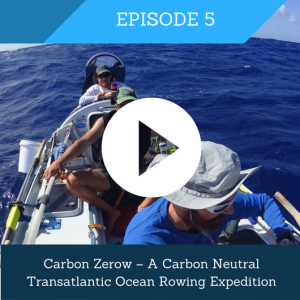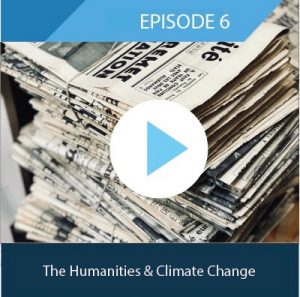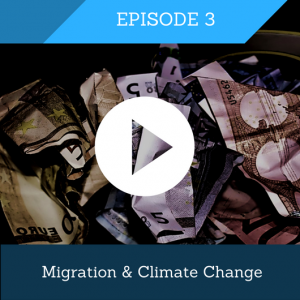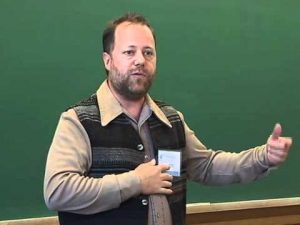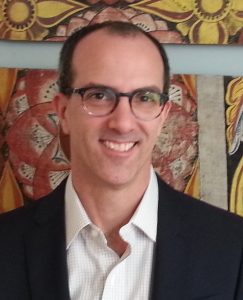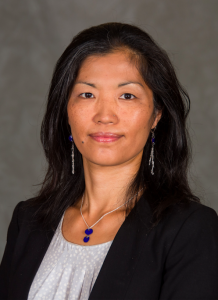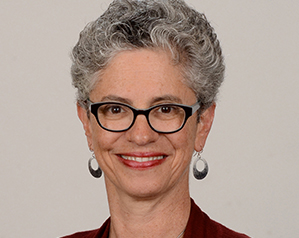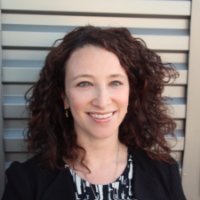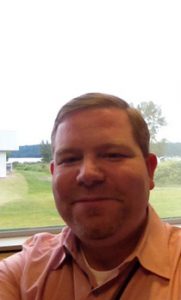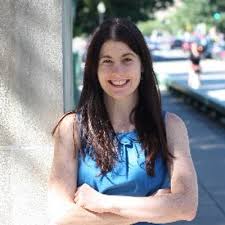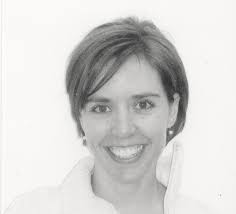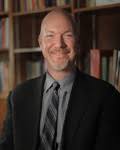Three Professors Walk Into a Bar is a podcast series intended to facilitate meaningful conversation around complex global issues. Each week, professors will explore different topics, challenges, and consequences of the global issue and attempt to grapple with some of the complexity. Scroll down to catch up on everything our professors have to say!
Episode 1: Food, Food Sustainability, and Climate Change
featuring Professor Yuki Kato, Professor Mark Giordano, and Professor Randall Amster
The purpose of this episode is to discuss the impact climate change has on food and food stability. While listeners are familiar with the basic science of climate change, this episode is meant to serve as the introduction to the wide array of subtopics that climate change intersects throughout the world. We will discuss the impact climate change has on agriculture and water availability, how island and urban communities can respond to climate change, and what steps should be taken as an individual to address the impending effects.
Randall Amster
Randall Amster, J.D., Ph.D., is Teaching Professor and Director in the Program on Justice and Peace. His most recent book is Peace Ecology (Routledge, 2015), and he serves as Editor-in-Chief of the Contemporary Justice Review. His current research interests include environmental peacebuilding, climate justice, intersectionality and ecology, community and sustainability, and the justice implications of contemporary technologies. On campus, he works with groups exploring areas including urban studies, climate change, and curricular development, and serves as Faculty Coordinator for the Core Pathways initiative.
Mark Giordano
Dr. Mark Giordano is Director of the Program in Science, Technology and International Affairs, the Cinco Hermanos Chair in Environment and International Affairs, member of the Georgetown Environment Initiative, Georgetown’s India Initiative and Professor of Geography in Georgetown’s School of Foreign Service. His classes encourage students to look differently at the world by exploring topics such as the water crisis, the global food system, and the interrelationship between science and international affairs. Mark’s research focuses on solutions to natural resource problems, particularly as related to water.
Yuki Kato
Dr. Yuki Kato is an urban sociologist whose research interests intersect the subfields of social stratification, food and health, symbolic interaction, culture, and youth. She has conducted research on the rise of urban agricultural cultivation and the alternative food movement in post-Katrina New Orleans, with a particular focus on food access disparity, spatial and social landscape of alternative food activism, and contested meanings of local during a major urban transformation.
Episode 2: Health and Climate Change
featuring Professor Laura Anderko, Professor Paul Roepe, and Professor Lois Wessel
The purpose of this episode is to share an in-depth analysis of how climate change has impacted global health and provide next-step solutions that listeners can implement in their daily lives. We will introduce topics such as the impact of climate change on available drinking water, why climate change is increasing the geographic spread of diseases, and how the health community is responding to these changes. At the end of this episode, we hope that listeners will have had an introduction to an increasingly important angle of climate change that needs to be addressed.
Laura Anderko
Laura Anderko, PhD, RN, holds the Robert and Kathleen Scanlon Chair in Values Based Health Care at Georgetown University School of Nursing & Health Studies. She is a Professor and Director of the Mid-Atlantic Center for Children’s Health and the Environment, and a scholar in the fields of epidemiology, public health and environmental health. In 2013, she was named a White House Champion of Change for her leadership in raising awareness about climate-related health effects.
Paul Roepe
Dr. Paul Roepe is currently on the faculty of the Chemistry Dept., the Biochemistry and Cellular and Molecular Biology Dept., and the Tumor Biology Program at Georgetown University. His training and independent research has been interdisciplinary but organized around the topics of membrane transport, drug resistance, and mechanisms of drug action. His advocacy work for the US government and a variety of NGOs centers on topics related to neglected infectious diseases, drug resistance and drug development, and better health care delivery.
Lois Wessel
Lois Wessel is a Family Nurse Practitioner focusing on care for the underserved. She is bilingual (English-Spanish) and works clinically with immigrant communities. She is experienced in provider training in the areas of oral health, health literacy, environmental health, group medical appointments, rural health, and team based care. Wessel is the course architect of the FNP course NURO-710 Care of the Family in Crisis and represents the School of Nursing & Health Studies on several inter-professional education efforts at Georgetown. She is a consultant to the Mid-Atlantic Center on Children’s Health and the Environment External link , a CDC-funded pediatric environmental health specialty unit at Georgetown. Wessel is also a group leader for Georgetown’s first-year medical student service learning program and is a member of the Alliance of Nurses for Healthy Environments.
Episode 3: Migration and Climate Change
featuring Professor Ali Arab, Professor Elizabeth Ferris, and Research Project Manager Nili Yossinger
The purpose of this episode is to have the listener understand how climate change is impacting large scale displacement of vulnerable populations and fundamentally altering global patterns of mobility. After listening to the podcast, we hope our listener has a deeper understanding of the environmental and political factors driving migration, as well as an introduction to critical action areas that must be explored and developed to help those impacted by displacement and mass migration.
Ali Arab
Dr. Ali Arab’s research interest include hierarchical Bayesian models, spatial and spatio-temporal models, environmental and ecological applications, Bayesian methods, climate change and anthropogenic impacts on natural processes, and risk and reliability assessment. He is also interested in the intersection of science and human rights. He is an active member of the AAAS Science and Human Rights Coalition and is affiliated with the Georgetown University’s Environment Initiative. Dr. Arab is also a member of the Board of Directors of the Amnesty International USA.
Elizabeth Ferris
Dr. Elizabeth Ferris is a research professor with the Institute for the Study of International Migration at Georgetown University’s School of Foreign Service and also serves as a nonresident senior fellow in Foreign Policy at the Brookings Institution. From January to September 2016, she also served as senior advisor to the U.N. General Assembly’s Summit for Refugees and Migrants in New York.
Nili Yossinger
Nili Sarit Yossinger is a Research Project Manager at the Office of the Senior Vice President for Research and the Institute for the Study of International Migration (ISIM) at Georgetown University. She holds a Bachelor of Arts in International Studies from Loyola University Chicago and a Master of German and European Studies from Georgetown University’s School of Foreign Service, along with a Certificate in Refugees and Humanitarian Emergencies from ISIM. She previously worked with the United Nations Refugee Agency, Human Rights First, and the Capital Area Food Bank of Washington DC. Nili’s current research focuses on complex humanitarian emergencies, with an emphasis on food security, environmental degradation, and forced migration in the Horn of Africa and Persian Gulf regions.
Episode 4: National Security, International Security, and Climate Change
featuring Professor Jeremy Mathis and Professor Paul Sullivan
The purpose of this episode is to have listeners understand the threat that climate change poses to national and international security. While listeners are familiar with climate change’s physical threats to the world, like rising temperatures, ocean acidification, desertification, etc., this episode will discuss security issues that emerge because of climate change, such as the competition over water resources, the melting arctic, and the impact of natural disasters on public safety.
Jeremy Mathis
Dr. Jeremy Mathis has been working in the Arctic for the past 15 years and is an expert on carbon cycle processes and ocean acidification. Before joining NOAA in 2012, he served on the faculty and was the founding director of the Ocean Acidification Research Center at the University of Alaska Fairbanks. Dr. Mathis has led numerous field campaigns in the Arctic and has published more than 80 peer-reviewed articles on his research. He has served as the Arctic lead for the North American Carbon Program and was co-chair of the Ocean Carbon Biogeochemistry Ocean Acidification subcommittee. He is now an adjunct professor of environment policy at Georgetown University.
Paul Sullivan
Dr. Paul Sullivan is a Professor of Economics at the Eisenhower School at the National Defense University. He is also an Adjunct Professor of Security Studies at Georgetown University. He is an Adjunct Senior Fellow for Future Global Resource Threats at the Federation of American Scientists and a Senior International Fellow at the National Council on US-Arab Relations. Dr. Sullivan is an expert on resource security issues, with a special focus on the nexus of energy, water, food and land. He is also an expert on issues related to the economics, politics, militaries, and more of the Middle East, North Africa and East Asia.
Episode 5: Carbon Zerow – A Carbon Neutral Transatlantic Ocean Rowing Expedition
featuring Brian Kerr, James Lamb, Kyle Smith, Phillip Van Benthem from Team Carbon Zerow
In this special feature on Three Professor Walk Into a Bar we are thrilled to hear from the Zerow team. This episode is meant to give you glimpse into what motivates a 45 day carbon neutral row across the Atlantic Ocean. Hear what all four team members have to say about their time in the middle of the ocean and the steps they took to meet the PAS 2060 carbon neutral standard.
Brian Kerr
Training & Boat safety
Profession: International development background now studying a masters in international affairs at Georgetown in Washington D.C.
Sport: Mountaineering, triathlons.
James Lamb
Funding & PR
Profession: Strategy & finance professional with experience in major consumer goods companies.
Sport: Rowed in 1st eight for Edinburgh University, long distance running, yacht racing and life5me sailing.
Kyle Smith
Boat maintenance & carbon tracking
Profession: Engineer with experience working on renewable energy systems around the world. Now studying a PhD in electrical engineering at the University of Strathclyde.
Sport: Swimmer, triathlons, marathons, mountaineering.
Phillip Van Benthem
Medic & Fitness
Profession: Paramedic with experience working across the middle east, Antarctica and for NY SWAT team. Currently studying a masters at John Hopkins in Washington D.C.
Sport: Rock climbing, olympicweight lifting.
Sound effects obtained from https://www.zapsplat.com
Episode 6: Humanities and Climate Change
featuring Karen Shaup, Patricia Viera. and Bernie Cook
What can the humanities teach us about our approach to the complex issue of climate change? How do disciplines such as literature, film, and poetry help us respond to it? Three professors from the Departments of Film and Media Studies, English, and Spanish and Portuguese discuss the power of the humanities to emphasize the human aspect of environmental change. They explain how media can elicit emotional connections to a problem that is often approached from a scientific angle. Take a listen to understand more about how the environment is represented in different forms of media and how the humanities can help us reckon with this new age.
Assistant Teaching Professor, Department of English
Karen Shaup is an Assistant Professor of Teaching in the English Department at Georgetown University. She teaches first-year writing and works on assessment and research projects with the Writing Team. She received her PhD from the University of Oregon. Recently, she published an article on Katherine Mansfield’s short story “The Garden Party” and the aesthetics of consumerism. She is interested in the digital humanities and composition pedagogy, and is currently working on a YouTube ethnography of online bird watching communities.
Patricia Vieira
Associate Professor, Department of Spanish and Portuguese
Patrícia I. Vieira is Associate Professor in the Department of Spanish and Portuguese. Her research focuses on Portuguese and Brazilian Literature and Cinema, Comparative Literature, Post-Colonial Studies and Ecocriticism. Her books include States of Grace: Utopia in Brazilian Culture and Portuguese Cinema 1930-1960: The Staging of the New State Regime. She has co-edited Portuguese Literature and the Environment, and The Language of Plants: Science, Philosophy, Literature. She is currently working on a book project that examines ecocritical approaches to texts and cinema on the Amazon rainforest. She is also co-editing a volume titled ”The Mind of Plants.”
Bernie Cook
Associate Dean, Georgetown College & Founding Director, Film and Media Studies Program
Dr. Bernie Cook (C’90, G’91) is Associate Dean in Georgetown College and Founding Director of the Film and Media Studies Program at Georgetown University. He is the author of Flood of Images: Media, Memory and Hurricane Katrina (University of Texas Press, 2015) and editor of Thelma & Louise Live! The Cultural Afterlife of an American Film (University of Texas Press, 2007). He is currently in production on a documentary film exploring the stories of the living descendants of the 272 enslaved people sold by the Jesuits in 1838.
Sound effects obtained from https://www.zapsplat.com


